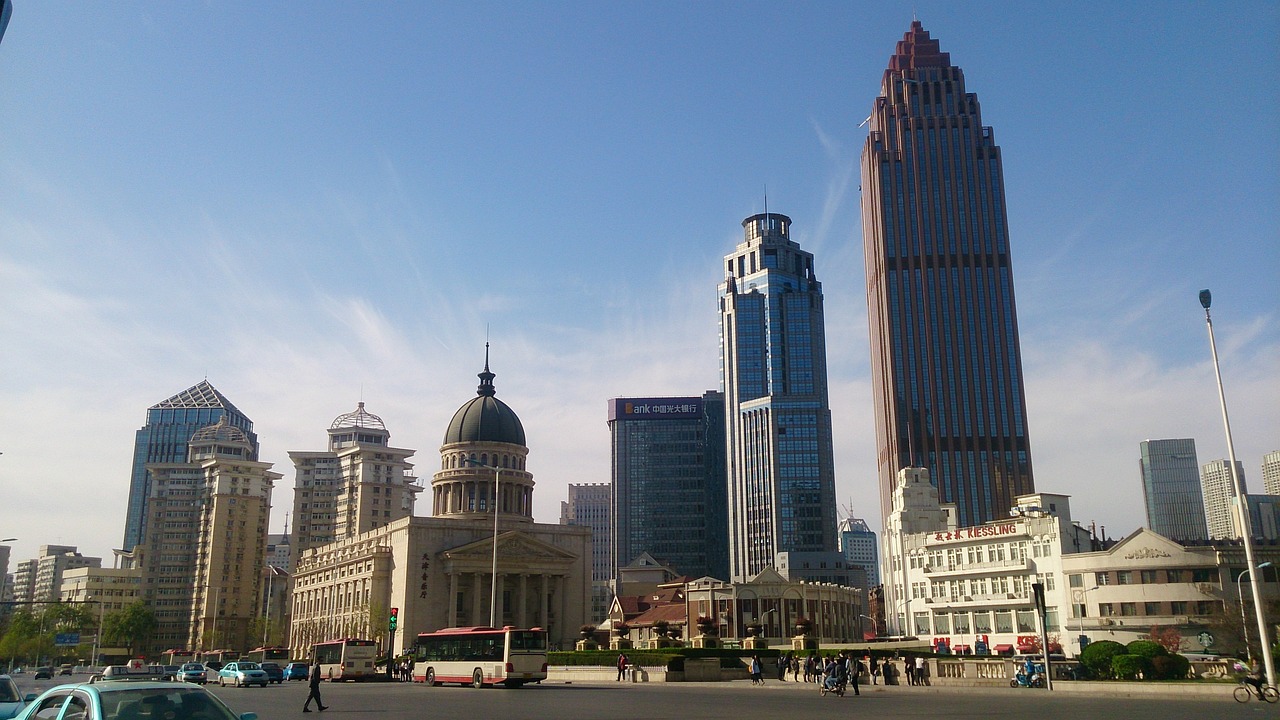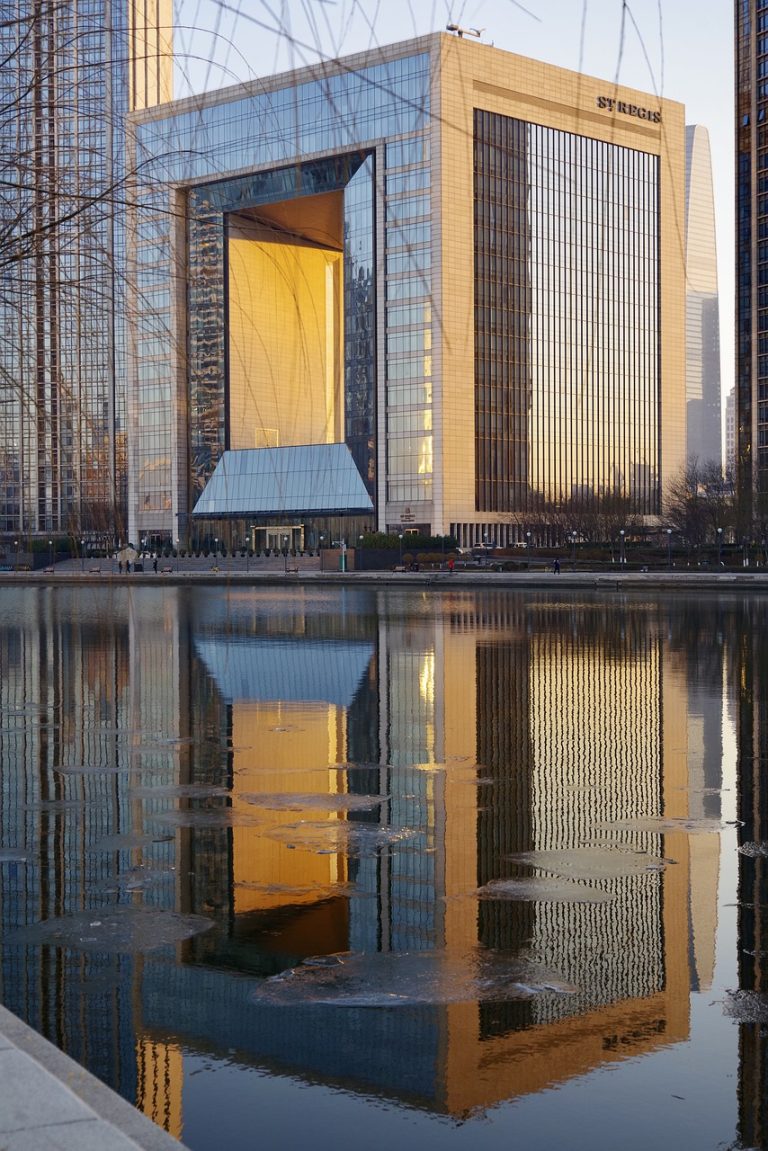Tianjin China Video
Eco-friendly Accommodations: Green Hotels in Tianjin China
Tianjin, located in northeastern China, is a bustling city known for its rich history, vibrant culture, and stunning architecture. As sustainability becomes an increasingly important global concern, more and more travelers are seeking eco-friendly accommodations that minimize their impact on the environment. In Tianjin, there are several green hotels that offer sustainable practices and eco-friendly amenities to cater to the needs of environmentally conscious travelers.
Green Hotel A
- Energy-efficient lighting: Green Hotel A prioritizes energy conservation by using LED lights throughout the property, reducing electricity consumption and carbon emissions.
- Water-saving initiatives: The hotel implements water-saving measures such as low-flow showerheads and faucets, as well as a linen reuse program to minimize water usage.
- Locally sourced and organic food: Green Hotel A supports local farmers and promotes sustainable agriculture by sourcing organic produce for their restaurant. Guests can enjoy delicious meals while reducing their carbon footprint.
- Recycling and waste management: The hotel has a comprehensive recycling program in place and encourages guests to separate recyclable materials. Additionally, they prioritize waste reduction and have implemented measures to minimize single-use plastics.
- Green transportation options: Green Hotel A offers bicycle rentals and promotes the use of public transportation to reduce carbon emissions from traditional vehicles.
Keywords: energy-efficient lighting, water-saving initiatives, locally sourced food, recycling, green transportation.
Green Hotel B
- Solar power: Green Hotel B utilizes solar panels to generate clean energy, reducing their reliance on fossil fuels and decreasing their carbon footprint.
- Green building design: The hotel incorporates sustainable building practices, such as using recycled materials, maximizing natural lighting, and implementing effective insulation, to reduce energy consumption.
- Environmentally friendly toiletries: Green Hotel B provides guests with eco-friendly toiletries that are free from harmful chemicals and packaged in biodegradable materials.
- Vegetarian and vegan options: The hotel’s restaurant offers a variety of vegetarian and vegan dishes, promoting a plant-based diet that has a lower environmental impact.
- Community engagement: Green Hotel B actively supports local environmental initiatives and collaborates with nearby communities to promote sustainability and conservation efforts.
Keywords: solar power, green building design, environmentally friendly toiletries, vegetarian options, community engagement.
Green Hotel C
- Energy management system: Green Hotel C utilizes an advanced energy management system to monitor and control energy usage, optimizing efficiency and reducing waste.
- Green meetings and events: The hotel offers eco-friendly options for meetings and events, including recycled paper products, digital communication tools, and sustainable catering services.
- Native landscaping: Green Hotel C incorporates native plants in its landscaping design, reducing the need for excessive watering and chemical pesticides.
- Renewable energy certificates: The hotel purchases renewable energy certificates to offset their carbon emissions, supporting the development of renewable energy sources.
- Education and awareness: Green Hotel C conducts educational programs and initiatives to raise awareness among guests and staff about sustainable practices and environmental conservation.
Keywords: energy management system, green meetings, native landscaping, renewable energy certificates, education and awareness.
Green Hotel D
- Green cleaning practices: Green Hotel D uses environmentally friendly cleaning products and practices to ensure a healthy and sustainable environment for guests.
- Efficient HVAC systems: The hotel utilizes energy-efficient heating, ventilation, and air conditioning systems to minimize energy consumption and reduce greenhouse gas emissions.
- Waste reduction initiatives: Green Hotel D implements waste reduction strategies, such as composting and donating leftover food, to minimize the amount of waste sent to landfills.
- Green certifications: The hotel has obtained various green certifications, demonstrating their commitment to sustainability and meeting stringent environmental standards.
- Guest education: Green Hotel D provides information and resources to educate guests about sustainable practices and encourage them to participate in the hotel’s green initiatives.
Keywords: green cleaning practices, efficient HVAC systems, waste reduction, green certifications, guest education.
Conclusion
Travelers visiting Tianjin, China, can enjoy a sustainable and eco-friendly experience by choosing to stay in one of the city’s green hotels. These accommodations offer a range of environmentally conscious practices, from energy-efficient lighting and water-saving initiatives to sustainable food options and waste management programs. By supporting these eco-friendly establishments, travelers can contribute to the preservation of the environment and promote sustainable tourism in Tianjin.
References
- Green Hotel A: www.greenhotela.com
- Green Hotel B: www.greenhotelb.com
- Green Hotel C: www.greenhotelc.com
- Green Hotel D: www.greenhoteld.com
Tianjin China Image 1:

Tianjin China Image 2:

Tianjin China Image 3:






